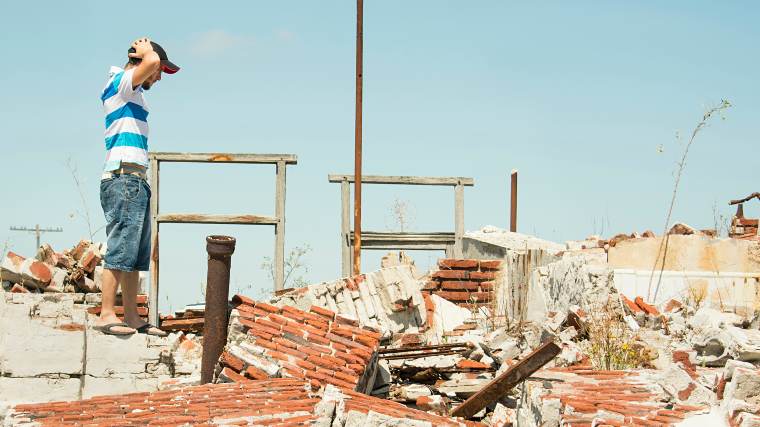Five Steps to Achieving Financial Stability After a Natural Disaster

When a natural disaster strikes, the news coverage captures the devastation that quickly envelops communities and forever changes lives. We’re familiar with these images as they’re the most visible and emotive elements of a catastrophic event.
However, after the camera crews depart and the immediate physical fallout is addressed, the long-term financial consequences of a natural disaster can be even more destructive than the event itself.
For many people, living through a catastrophe will disrupt their income, stressing savings accounts and credit limits as out-of-pocket costs associated with recovery efforts plunge them into debt before meaningful recovery can even begin.
The cost of recovery is immense, and too often the financial repercussions of living through a natural disaster create incredible strain for survivors, slowing the recovery process and causing continual disruption along the way.
Ready for some good news? Financial peace is an attainable reality. By making the right moves after a disaster event, full recovery is possible.
Here are five steps to achieving financial stability after a natural disaster.
1. Prioritize Payments
After a disaster event occurs, it’s normal for funds to be limited even as financial obligations mount. Increased demand sends housing prices soaring, building materials become more costly, and food supplies can be both hard to find and more expensive to buy.
It’s critical to prioritize payments to ensure that the most vital goods and services are acquired first. Distinguishing between high and low priority payment obligations can maximize recovery opportunity while ensuring that necessities stay accessible.
Notably, nonnegotiables like housing, transportation, food, insurance, and medical needs are a top priority, while other expenses may have the flexibility to be put off until later.
Meanwhile, minimize the amount of money going out the door by turning off automated payments to low-priority expenses and discontinuing utility services for homes that aren’t inhabitable.
Most importantly, timeliness matters. Take action as soon as possible to set the groundwork for achieving financial stability.
2. Contact Your Creditors
Managing debt obligations can be incredibly challenging in the chaotic aftermath of a natural disaster. Fortunately, many creditors are willing to make special arrangements for those impacted by a catastrophic event.
Creditors may offer ways to support disaster survivors, including:
- Pausing payment obligations for a limited time.
- Enabling a lump-sum repayment at a later time.
- Issuing a loan modification to make monthly payments more affordable.
Moreover, to promote long-term, holistic financial stability, you can request that these changes not be negatively reflected in your credit report. Creditors are not required to accommodate this request, but if they agree, be sure to note the details of the conversation and set a reminder to check your credit report in a few months to verify.
If your creditors won’t work with you to create a viable path for managing your debt, don’t stop trying to find solutions. You may be able to find relief by speaking with a certified credit counselor at MMI about concessions the creditors offer through our services.
3. File Insurance & Assistance Claims
Insurance and federal assistance are two of the most important ways to get up and running again after a natural disaster. Therefore, filing insurance and assistance claims should be a top priority for promoting financial stability.
After a disaster event, contact your insurance agent and begin the process of getting your claims started. Most insurance companies impose specific timeframes for filing claims, so give yourself plenty of time to get the claim filed and, if necessary, amended.
Similarly, immediately file for federal financial assistance. The following government organizations mobilize in response to natural disasters, and they are a front-line of support for those looking for financial assistance:
- Federal Emergency Management Agency (FEMA)
- Small Business Association (SBA)
- Food and Drug Administration (FDA)
Quickly submitting insurance claims and aid applications ensures that resources will become available as soon as possible, perhaps mitigating the risk of further financial implications and hastening the recovery process.
4. Find a Case Manager
Recovering from a natural disaster can be an arduous, drawn-out process, but nobody has to go through it alone. Case managers are available to help with everything from finding food supplies to identifying reliable contractors.
Case managers offer immediate and long-term guidance that makes a confusing situation more clear, providing on-the-ground assistance to help people affected by a natural disaster rebuild their lives as quickly as possible.
Aid organizations like the American Red Cross provide volunteer case managers and other services that promote total recovery from a catastrophic event. At the same time, there are dozens of religious organizations and nonprofits offering free case management services.
The recovery process is complicated. Get the support necessary to make the process as simple and effective as possible.
5. Contact Project Porchlight
74% of those who experienced a natural disaster indicated that at least one element of post-disaster financial coaching could have improved their financial picture. Now, that service is available for free through Project Porchlight.
Project Porchlight is a free disaster recovery solution that helps survivors regain their financial footing.
It’s a one-year program that supports survivors as they overcome post-disaster financial challenges by providing a step-by-step recovery plan, counseling, referrals, monthly check-ins, and aid application assistance. Project Porchlight is staffed by HUD-approved counselors who are specially trained to help people navigate the road to financial peace after a natural disaster.
Natural disasters are undoubtedly destabilizing, causing chaos on many fronts. With the right help, it’s possible to re-establish financial security after a natural disaster, an important benchmark on the path to restoring normalcy.















